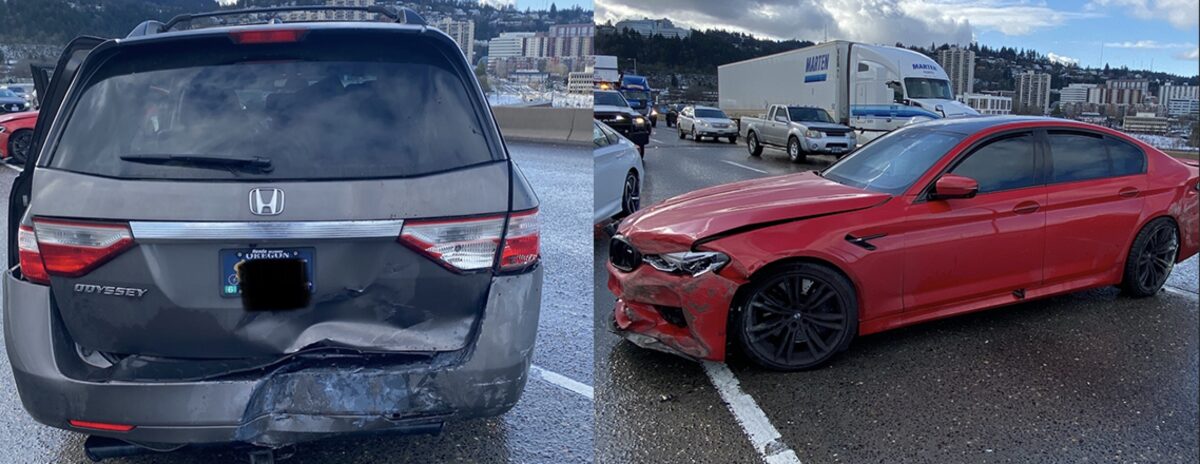Cycling News & Blog Articles
When traffic violence hits home
I follow every road authority and first responder in the region so I can stay abreast of every reported crash just in case one of them warrants more attention.
On Tuesday, one of these blips on my screen was a crash on I-5 that involved my wife and 15-year-old daughter.
They are fine. We are lucky. And now they understand their dad a bit better.
Everyone in my family knows how much traffic violence weighs on my mind when we’re in the car together. I drive absurdly slowly and carefully and I get nervous when others don’t. It’s annoying to everyone — especially my teenagers who roll their eyes and say I’m “obsessed” with safety. I can’t not be, I tell them. I’ve seen too much.
The constant stream of sad and bad news I read every day — mixed with all the stories I’ve written, the crash scenes I’ve visited, the vigils I’ve attended, and all the moms and dads and brothers and sisters of victims I’ve talked with over all these years. It has physically altered my brain.
Advertisement
When my phone rang yesterday and I heard my girl say, “Dad, we were in a crash on the Marquam Bridge (I-5)” I was calm. Surprisingly so. Maybe because the tone of her voice told me I could be. But I also think — and this unsettles me still — that in some twisted way, I thought, “Yep, I knew this would happen.” The normalization of traffic violence I write and read about at work all the time has infected me so much that I didn’t even freak out when members of my own family where hit from behind at a high speed and spun-around on the top deck of a freeway bridge hundreds of feet above the Willamette River.
I was scared and worried as it sunk in. I teared up a bit when I finally got to hug them. But I can’t shake this thought: That I’ve become a robot without feelings, programmed to expect traffic violence — even when it happens to my own flesh and blood.
The system has no feelings either. With no major injuries and no police response, the system won’t know this ever happened. There will be no investigation of why this man lost control of his car, no consideration of punishment for his actions, and no consideration of how/if the infrastructure played a role.
Just another blip on the screen.
Over breakfast this morning we talked about mundane things like insurance and replacing our van. My wife brought up her disappointment that the guy who hit them never said sorry or checked to make sure they were OK. I ranted a bit about how quickly the well-oiled Auto Industrial Complex kicked into gear and how various interests will gladly profit off the crash.
And then there are nagging questions: What if they were in a smaller car? What if the other guy was in a huge SUV? What if they hit the guardrail and plunged into the river (like this horrible crash a few days ago)? What if they were more seriously injured? Or what if… I don’t even want to think about that.
What I can and will think about are questions I grappled with long before my daughter’s phone call, but that carry even sharper edges today: What if we made it more normal to reject this violent epidemic rather than to accept it? How many lives could we save if we did that? How many lives are acceptable to sacrifice? How many lives in your own family are you willing to sacrifice?
— Jonathan Maus: (503) 706-8804, @jonathan_maus on Twitter and This email address is being protected from spambots. You need JavaScript enabled to view it.
— Get our headlines delivered to your inbox.
— Support this independent community media outlet with a one-time contribution or monthly subscription.



